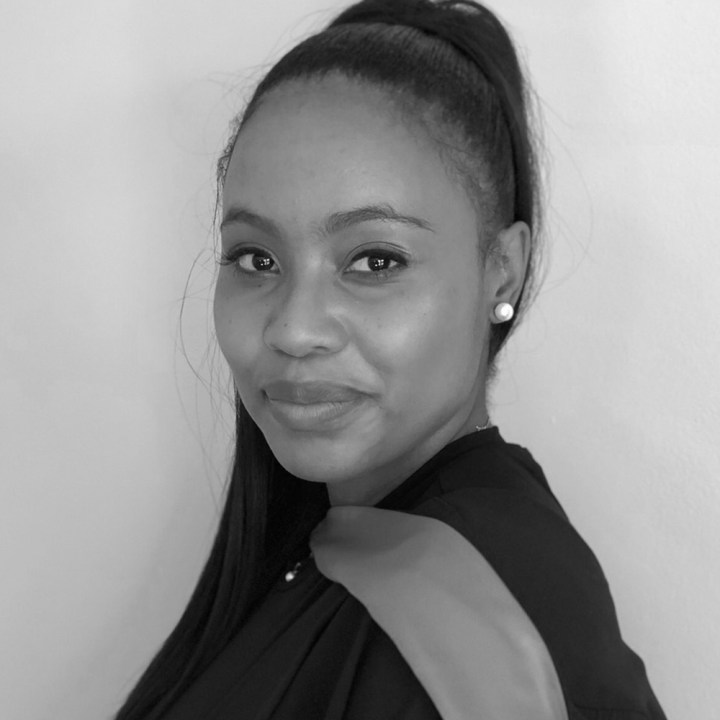HUMAN RIGHTS DAY REFLECTION
I need to speak out for the freedoms my mother went to jail for

After spending months in one of the country’s most notorious prisons, my mother’s family never addressed how the experience affected her. With years of suppressed anger and disappointment, she explains how being afforded the opportunity to talk about her trauma could have helped her healing process. As a young South African living in the country she fought for, I’ve learned to appreciate the importance of speaking up as a right I should exercise without censorship.
This article is part of a series of reflections from Young Maverick writers about what Human Rights Day (March 21) means to them.
My mom went to jail in the 1980s.
The first time she told me this, I was extremely young and I can’t remember the context behind why she had shared this bit of information.
Now, sitting in the house dealing with a crisis like Covid-19 while Human Rights Day is around the corner, I guess it provides an opportunity to sit down and talk to those who you are now “social-distancing” with, so to speak.
Once more, you get so wrapped up in your thoughts that everything feels like it’s running on overdrive.
For instance, when someone asks you: “What does Human Rights Day mean to you as a young person?”
The short and Googled answer is Human Rights Day is a day when South Africans are meant to remember the events of Sharpeville. On that day 69 people died and 180 were wounded when police fired on a peaceful crowd that had gathered in protest against the pass laws.
But then as a young coloured South African woman, I decided to ask a woman who went to jail in the 1980s; what does Human Rights Day mean to you, mom?
It’s in her answer that I become mute and astounded so that you would think that she is telling me she has gone to jail for the first time — but she is not.
She is simply reminding me that, even though Sharpeville was a different tragedy, there are South Africans whose tireless fight for freedom under the apartheid government earned us public holidays like this as a reminder of the fights of the past.
And that people of colour prospered. In the end.
Lucinda Retief, my mother, tells me a story about how the United Democratic Front (UDF) came to her school when she was in Standard 8 in Atlantis in the Western Cape.
“At the time there was a lot of riots and protests,” my mom tells me, “They did talks to us, you know, about apartheid and stuff.”
At the time, the school had a lot of white teachers from outside the community at the school. This did not sit well for a lot of the students as many coloured teachers were left unemployed, unable to teach in the community.
“So we went to go protest,” she explains, “But for us, we didn’t want to destroy the school because education for us was very important. We just wanted to see equality. It was just about equality.”
My mother was part of the leadership that led a group of protesting learners from one school to another to mobilise and gather more learners to join them in their fight for equal opportunities.
As the learners marched, police appeared — to “disperse them” which led to everyone running away and “jumping over walls”.
The plot thickened when someone in their ranks told the police about the leadership of this particular march and where they lived.
“They came one night and fetched me,” my mother recalls. “Ma and Pa [your grandparents] were at church… But when they came back, the police told them that I was brainwashed because I was quiet and they wanted me to give up the names of people in the UDF. I didn’t.”
My mother spent months in Pollsmoor Prison and when she was released, no one spoke about it or brought it up.
“Even when I was in jail as much as you’d like to think that your family and friends would support you back then,” my mother shrugs, “they just went back to school.”
She recalls how being depressed in a coloured household was not “a thing”, so to speak of her experiences was something that could not and did not happen.
“I suppose it would have helped,” she tells me. “I mean I have a lot of suppressed anger, especially towards those who benefited from my fight in the struggle.”
The reality is that sometimes when public holidays like this come, I am faced with the reality that I tend not to think about the past. This also means that sometimes I tend to block off any reality that there was once a time when, if something traumatic happened, it was not spoken about.
“If I can tell you or any young person anything,” my mother says, “don’t let anybody undermine your feelings. Or make you feel like your feelings aren’t relevant. Use your voice and express yourself.”
So I think that’s what Human Rights Day means to me as a young coloured woman who also works in the field of journalism — that I have the right to speak about my feelings. That when I am placed in a position where I have to do stories that trigger me, I, as a young person, will use my voice.
Because the people of Sharpeville fought for that right.
Because my mother fought for that right. DM

















 Become an Insider
Become an Insider